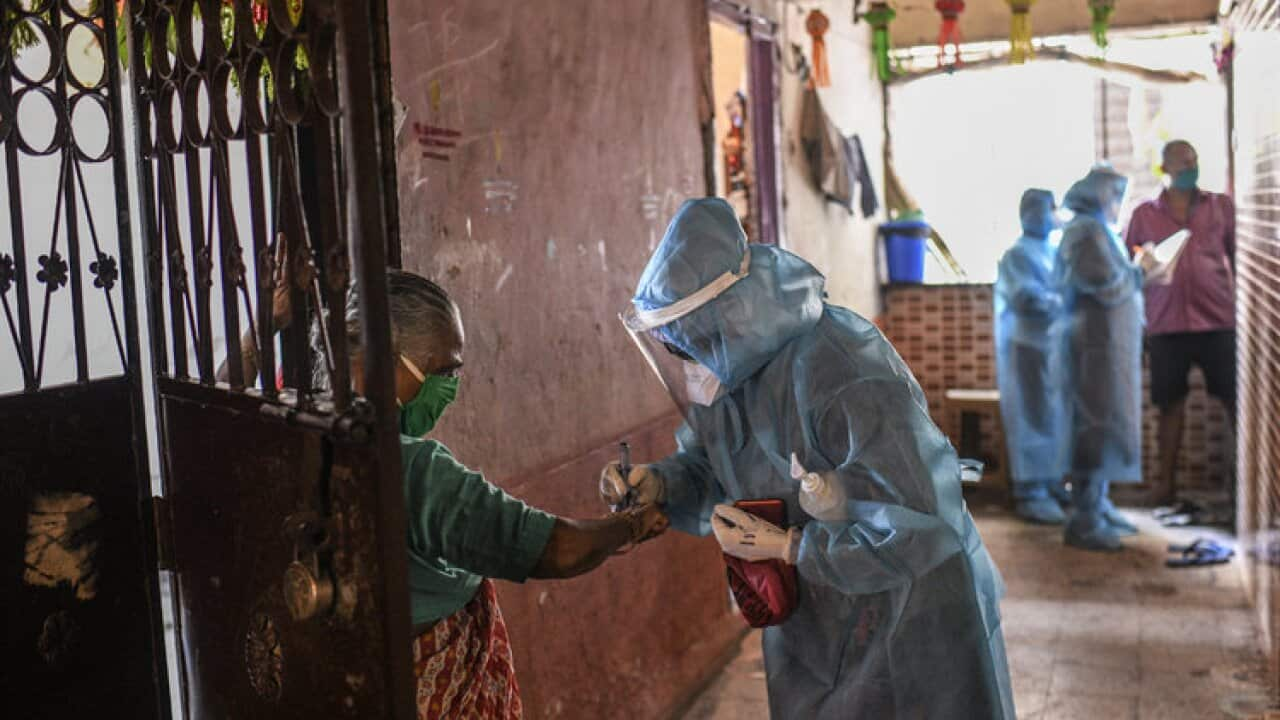After surpassing China on Saturday, India now has the most confirmed virus cases in Asia, with nearly 91,000, including 2872 deaths.
New Delhi, Mumbai, Chennai and some other key regions are still battling to control the rising curve of coronavirus infections.
But the home ministry said low-risk areas will be allowed to restore economic activity.
All domestic and international passenger flights will remain prohibited and metro services, schools, colleges, hotels and restaurants will also remain shuttered, the home ministry said. Under the new guidelines, bus and passenger vehicles would be allowed to travel within and between states outside of containment zones but this would be decided by the state governments.
Under the new guidelines, bus and passenger vehicles would be allowed to travel within and between states outside of containment zones but this would be decided by the state governments.

An Indian doctor conducts a swab test for coronavirus in Guwahati Medical College Hospital (AAP) Source: AP
India's government yesterday reported a record jump of nearly 5000 cases in the past 24 hours, raising the number of confirmed cases to 90,927.
India had fewer than 500 confirmed cases and nine deaths when the lockdown was first imposed on March 25. On 4 May, the government announced an easing of restrictions, allowing the reopening of neighbourhood shops and manufacturing and farming in rural areas.
On 4 May, the government announced an easing of restrictions, allowing the reopening of neighbourhood shops and manufacturing and farming in rural areas.

Paramilitary troopers stand on guard in Kashmir (AAP) Source: Sipa USA Saqib Majeed / SOPA Images/Sipa
It also resumed running a limited number of trains mainly to carry stranded migrant workers.
People in Australia must stay at least 1.5 metres away from others. Check your state’s restrictions on gathering limits.
Testing for coronavirus is now widely available across Australia. If you are experiencing cold or flu symptoms, arrange a test by calling your doctor or contact the Coronavirus Health Information Hotline on 1800 020 080.
The federal government's coronavirus tracing app COVIDSafe is available for download from your phone's app store.
SBS is committed to informing Australia’s diverse communities about the latest COVID-19 developments. News and information is available in 63 languages at .


